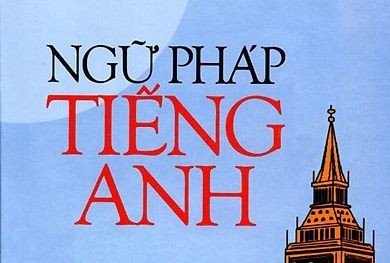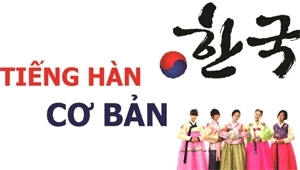Unit 5: The Future Simple & The Near Future
Trước khi vào bài học bài mới ngày hôm nay, bạn nào đã quên kiến thức bài học cũ có thể xem lại bài học dưới đây nhé:
· Unit 2: Past simple, Past continuous, Use to & Would
· Unit 3: Present perfect, Present perfect continuous
· Unit 4: Past perfect, past perfect continuous
-
XEM ĐẦY ĐỦ
-
TÓM TẮT
-
BÌNH LUẬN
Để hiểu được dạng thức cũng như cách sử dụng của 2 thì tương lại đơn, tương lai gần các bạn xem qua đoạn hội thoại ngắn sau nhé!
The Party
Martha: What horrible weather today. I'd love to go out, but I think it will just continue raining.
Jane: Oh, I don't know. Perhaps the sun will come out later this afternoon.
Martha: I hope you're right. Listen, I'm going to have a party this Saturday. Would you like to come?
Jane: Oh, I'd love to come. Thank you for inviting me. Who's going to come to the party?
Martha: Well, a number of people haven't told me yet. But, Peter and Mark are going to help outwith the cooking!
Jane: Hey, I'll help, too!
Martha: Would you? That would be great!
Jane: I'm sure everyone will have a good time.
Martha: That's the plan!
Chúng ta sẽ trở lại đoạn hội thoại sau khi các bạn đã nghiên cứu bảng so sánh dưới đây:
Công thức Thì Tương lai đơn & Tương lai gần:
| THÌ TƯƠNG LAI ĐƠN | THÌ TƯƠNG LAI GẦN |
| 1. To be: S+ will/shall + be + Adj/noun Ex: He will probably become a successful businessman 2. Verb: S+will/shall+V-infinitive Ex: Ok. I will help you to deal with this | 1. To be: S+be going to+be+adj/noun Ex: She is going to be an actress soon 2. Verb: S + be going to + V-infinitive Ex: We are having a party this weekend |
Cách sử dụng:
| THÌ TƯƠNG LAI ĐƠN | THÌ TƯƠNG LAI GẦN |
| 1. Diễn đạt một quyết định ngay tại thời điểm nói (On-the-spot decision) Ex: - Hold on. I‘ll geta pen. - We will seewhat we can do to help you. 2. Diễn đạt lời dự đoán không có căn cứ Ex: - People won’t goto Jupiter before the 22nd century. - Who do you think will getthe job? 3. Signal Words: I think; I don't think; I am afraid; I am sure that; I fear that; perhaps; probably | 1. Diễn đạt một kế hoạch, dự định (intention, plan) Ex: - I have won $1,000. I am going to buy a new TV. - When are you going to goon holiday? 2. Diễn đạt một lời dự đoán dựa vào bằng chứng (evidence) ở hiện tại Ex: - The sky is very black. It is going to snow. - I crashed the company car. My boss isn’t going to bevery happy! 3. Signal words: Những evidence ở hiện tại. |
Sau đây là một số phân tích, áp dụng kiến thức từ bảng so sánh trên:
Dialog - The Party
Martha: What horrible weather today. I'd love to go out, but I think it will just continue raining. (Signal word : I think)
Jane: Oh, I don't know. Perhaps the sun will come out later this afternoon. (Signal word: perhaps)
Martha: I hope you're right. Listen, I'm going to have a party this Saturday. Would you like to come? (a plan)
Jane: Oh, I'd love to come. Thank you for inviting me. Who's going to come to the party? (intention)
Martha: Well, a number of people haven't told me yet. But, Peter and Mark are going to help out with the cooking! (Intention)
Jane: Hey, I'll help, too! (on-the-spot decision)
Martha: Would you? That would be great!
Jane: I'm sure everyone will have a good time. (Signal word: I am sure)
Martha: That's the plan!
Bên cạnh 2 thì Tương lại đơn (Future simple) và Tương lai gần (Near future), chúng ta có 1 thì cũng có chức năng diễn đạt ý tương lai – đó là thì Hiện tại tiếp diễn (Present continuous)
Chúng ta sử dụng thì Hiện tại tiếp diễn để nói về kế hoạch, sự sắp xếp cố định (plans or definite arrangements)
We are staying in a small hotel.
Grammar extra: Khi diễn đạt tính dự đoán, ngoài từ “will” chúng ta còn có thêm 1 số từ khác như:
Trong văn phong formal writing, chúng ta có thể dùng những cụm từ khác thay thế cho “will” như: be likely, be predicted to, be estimated to, be certain to.
The population is likely to increase to 22 million in 20111.
The average annual rainfall is predicted to be ten percent lower than today’s figures.
Trước khi vào bài học bài mới ngày hôm nay, bạn nào đã quên kiến thức bài học cũ có thể xem lại bài học dưới đây nhé:
· Unit 2: Past simple, Past continuous, Use to & Would
· Unit 3: Present perfect, Present perfect continuous
· Unit 4: Past perfect, past perfect continuous

















